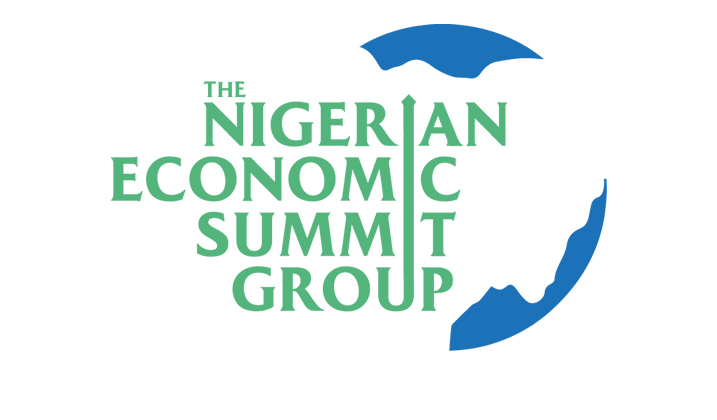The Nigerian Economic Summit Group (NESG) has raised fresh concerns over the broader implications of Nigeria’s domestic policy decisions, warning that the country’s strategic choices are not only shaping its own future but also influencing economic trends and political developments across the African continent.
Speaking during a recent policy dialogue in Abuja, the NESG emphasized that Nigeria’s size, economy, and geopolitical position place it at the center of Africa’s prospects for integration and development. As such, decisions made by the Nigerian government — especially on monetary policy, fiscal reforms, and regulatory frameworks — could either bolster or undermine collective progress across regional blocs like ECOWAS and the African Continental Free Trade Area (AfCFTA).

Dr. Tayo Aduloju, Chief Executive Officer of the NESG, noted that while Nigeria grapples with internal challenges such as inflation, insecurity, and sluggish economic growth, the ripple effect of its policies remains significant for neighboring economies. “We must not underestimate the strategic weight Nigeria holds. Our policy missteps reverberate beyond our borders — from trade disruptions to investor confidence and regional stability,” he said.
He cited examples such as border closures in recent years that affected trade flows between Nigeria and Benin Republic, Niger, and Ghana, as well as fluctuating foreign exchange regimes that continue to impact investment patterns across the region. According to the NESG, without deliberate and transparent policymaking, Nigeria risks weakening both domestic institutions and continental trust.
The Group called for greater coordination between Nigeria’s federal government and key stakeholders in shaping policies that reflect long-term developmental goals. It stressed the need for inclusive dialogue, evidence-based strategies, and alignment with continental aspirations such as the Agenda 2063 of the African Union.
“Every macroeconomic decision we make — be it on interest rates, subsidies, taxation, or energy — can accelerate or stall the continent’s collective growth,” Aduloju added. He further stated that the burden of leadership that comes with Nigeria’s position should compel it to adopt more disciplined and foresighted governance models.
Experts at the dialogue also pointed out that Nigeria’s performance in sectors such as energy, agriculture, and technology has direct bearing on regional markets. For instance, Nigeria’s inability to meet its power supply potential is holding back electricity trade through the West African Power Pool, while inconsistent agricultural policies are affecting food security in neighboring countries.
The NESG urged the federal government to pursue policy stability, reduce bureaucratic red tape, and support private sector growth, particularly as it seeks to attract foreign direct investment and fulfill its potential as a manufacturing hub under AfCFTA.
Policy analyst and NESG board member, Dr. Jumoke Oduwole, echoed these sentiments, stressing that Nigeria’s conduct in the next decade will shape Africa’s reputation in global economic diplomacy. “We are being watched. When we falter in reforming our economy or fail to adhere to democratic values, it casts a shadow on Africa’s emergence,” she said.
As Africa’s largest economy and most populous nation, Nigeria is expected to take the lead in driving inclusive development, technological innovation, and green transition. However, NESG warned that such leadership must be earned through transparency, accountability, and policy coherence.
The dialogue concluded with a call for institutional reforms, especially in data governance, fiscal discipline, and judicial independence. Participants highlighted that a stronger, more stable Nigeria is a prerequisite for Africa’s global competitiveness.
The NESG committed to continuing its engagements with government and civil society to foster policy reforms that will not only revitalize Nigeria’s economy but also enhance its capacity to lead Africa toward a sustainable and integrated future.
Additionally, the NESG recommended enhancing collaboration between Nigeria and regional economic communities to ensure policy harmonization that supports continental goals. They emphasized the importance of Nigeria taking an active role in shaping the implementation of agreements such as the AfCFTA, not just through political commitments, but by ensuring its domestic policies align with trade facilitation, customs modernization, and infrastructure development needed to unlock intra-African commerce.
The organization also stressed the need for improved data systems to support evidence-based policymaking, noting that without reliable metrics and transparency, efforts at reform could falter. As Nigeria prepares for future regional engagements, the NESG concluded that sustained political will, institutional resilience, and citizen participation will be critical to positioning the country as a credible and effective leader in Africa’s development journey.
Support InfoStride News' Credible Journalism: Only credible journalism can guarantee a fair, accountable and transparent society, including democracy and government. It involves a lot of efforts and money. We need your support. Click here to Donate
